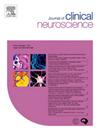脑卒中幸存者残疾与照顾者负担维度之间关系的横断面研究
IF 1.8
4区 医学
Q3 CLINICAL NEUROLOGY
引用次数: 0
摘要
目的中风幸存者的照顾者,主要是配偶,承受着巨大的压力。这项研究调查了中风幸存者的残疾与其配偶的心理健康和照顾者的反应之间的关系。材料与方法中风后6个月,我们根据中风幸存者入组时的残疾情况招募四组(每组30对)。共纳入118对。使用Barthel指数、迷你精神状态和修正Rankin评分对幸存者进行评估。分组分为:无残疾、身体残疾(Barthel指数≤90)、认知残疾(Mini-mental state≤23)、认知和身体残疾。配偶被评估使用综合精神病理评定量表-自我情感和照顾者反应评估量表,包括打乱的日程,缺乏家庭支持,健康问题,经济问题和自尊。结果任何残疾都与打乱计划、缺乏家庭支持和健康问题有关。两组在自尊维度上无显著差异。身体残疾,单独或合并认知残疾,与财务问题有关,而单独的认知残疾与财务问题无关。经调整的logistic回归模型显示,照顾者抑郁与打乱的工作安排、缺乏家庭支持和健康问题显著相关。结论和意义中风后6个月,任何残疾和caregiveŕs可能的抑郁症都与中风幸存者配偶的日程中断、缺乏家庭支持和健康问题有关。应提供早期康复,以最大限度地提高中风幸存者的功能,并尽量减少照顾者的负担。此外,家庭应该得到社会支持,以帮助减轻这些挑战。本文章由计算机程序翻译,如有差异,请以英文原文为准。
A cross-sectional study of associations between stroke survivors’ disability and caregiver burden dimensions
Objectives
Caregivers of stroke survivors, mostly spouses, experience significant strain. This study examined the associations between stroke survivors’ disabilities and their spouses’ psychological health and caregiver reactions.
Materials and methods
Six months post-stroke, we recruited four groups (30 dyads each) based on the stroke survivors’ disabilities at inclusion. A total of 118 dyads were included. Survivors were assessed using the Barthel Index, Mini–mental State, and modified Rankin Score. Groups included: No disability, Physical disability (Barthel Index ≤ 90), Cognitive disability (Mini-mental state ≤ 23), and Cognitive and Physical disability. Spouses were assessed using the Comprehensive Psychopathological Rating Scale–Self-Affective and the Caregiver Reaction Assessment Scale, which includes Disrupted schedule, Lack of family support, Health problems, Financial problems, and Self-esteem.
Results
Any disability was associated with Disrupted schedule, Lack of family support, and Health problems. There were no significant differences between groups in the Self-esteem dimension. Physical disability, alone or combined with cognitive disability, was associated with Financial problems, whereas cognitive disability alone was not. An adjusted logistic regression model showed caregiver depression was significantly associated with Disrupted schedule, Lack of family support, and Health problems.
Conclusion and implications
Six months post-stroke, any disability and caregiveŕs possible depression are associated with Disrupted schedule, Lack of family support, and Health problems among spouses of stroke survivors. Early rehabilitation should be provided to maximize stroke survivors’ functioning and minimize caregiver burden. Additionally, families should receive social support to help mitigate these challenges.
求助全文
通过发布文献求助,成功后即可免费获取论文全文。
去求助
来源期刊

Journal of Clinical Neuroscience
医学-临床神经学
CiteScore
4.50
自引率
0.00%
发文量
402
审稿时长
40 days
期刊介绍:
This International journal, Journal of Clinical Neuroscience, publishes articles on clinical neurosurgery and neurology and the related neurosciences such as neuro-pathology, neuro-radiology, neuro-ophthalmology and neuro-physiology.
The journal has a broad International perspective, and emphasises the advances occurring in Asia, the Pacific Rim region, Europe and North America. The Journal acts as a focus for publication of major clinical and laboratory research, as well as publishing solicited manuscripts on specific subjects from experts, case reports and other information of interest to clinicians working in the clinical neurosciences.
 求助内容:
求助内容: 应助结果提醒方式:
应助结果提醒方式:


